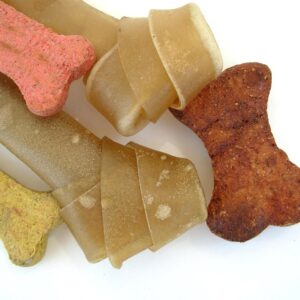As a veterinarian, I often get asked by pet owners about the best ways to keep their furry friends healthy and happy. One topic that frequently comes up is whether or not it is safe to give your dog beef bones to chew on. While there are some potential risks associated with feeding bones to dogs, there are also many benefits that should not be overlooked.
One of the main benefits of feeding beef bones to your dog is the dental benefits. Chewing on bones can help to keep your dog’s teeth clean by removing plaque and tartar buildup. This can help to prevent dental issues such as tooth decay and gum disease, which can be painful and costly to treat.
In addition to improving your dog’s dental health, chewing on bones can also help to satisfy their natural urge to chew. Dogs are natural chewers, and providing them with bones to chew on can help to prevent destructive chewing behaviors, such as chewing on furniture or shoes. Chewing on bones can also help to keep your dog mentally stimulated and prevent boredom, which can lead to behavioral issues.
Another benefit of feeding beef bones to your dog is the nutritional value they provide. Beef bones are rich in essential nutrients such as calcium, phosphorus, and magnesium, which are important for maintaining strong bones and muscles. They also contain marrow, which is a good source of healthy fats and protein.
Feeding your dog beef bones can also help to improve their joint health. The cartilage and connective tissue found in bones can help to lubricate your dog’s joints and reduce inflammation, which can be beneficial for dogs with arthritis or other joint issues. Additionally, chewing on bones can help to strengthen your dog’s jaw muscles, which can help to prevent dental issues and improve their overall oral health.
While there are many benefits to feeding beef bones to your dog, it is important to do so safely. It is important to choose appropriately sized bones for your dog, based on their size and chewing habits. Larger dogs may be able to safely chew on larger bones, while smaller dogs may need smaller bones to prevent choking or dental issues.
It is also important to supervise your dog while they are chewing on bones, to ensure they do not swallow large pieces or choke on smaller pieces. It is also a good idea to monitor your dog’s chewing habits and remove the bone if it becomes small enough to be a choking hazard. Additionally, it is important to avoid feeding your dog cooked bones, as they can splinter and cause injuries to your dog’s mouth or digestive tract.
In conclusion, feeding beef bones to your dog can provide many benefits, such as improving their dental health, satisfying their natural urge to chew, providing essential nutrients, and improving their joint health. However, it is important to do so safely and responsibly to prevent any potential risks. If you are unsure about whether or not it is safe to feed your dog bones, I recommend consulting with your veterinarian for guidance.



